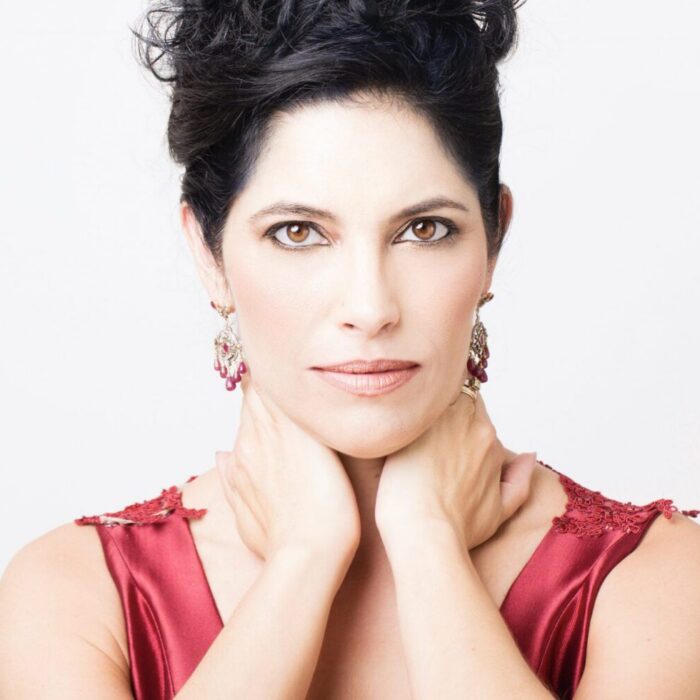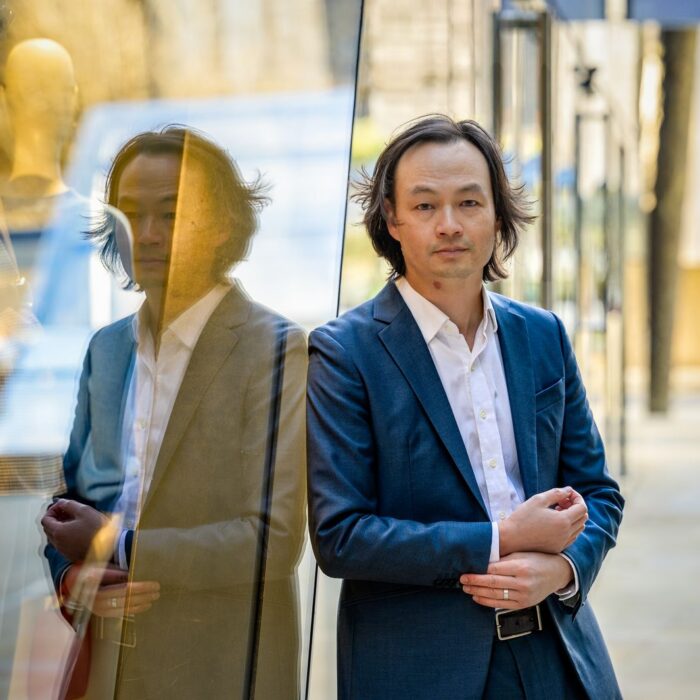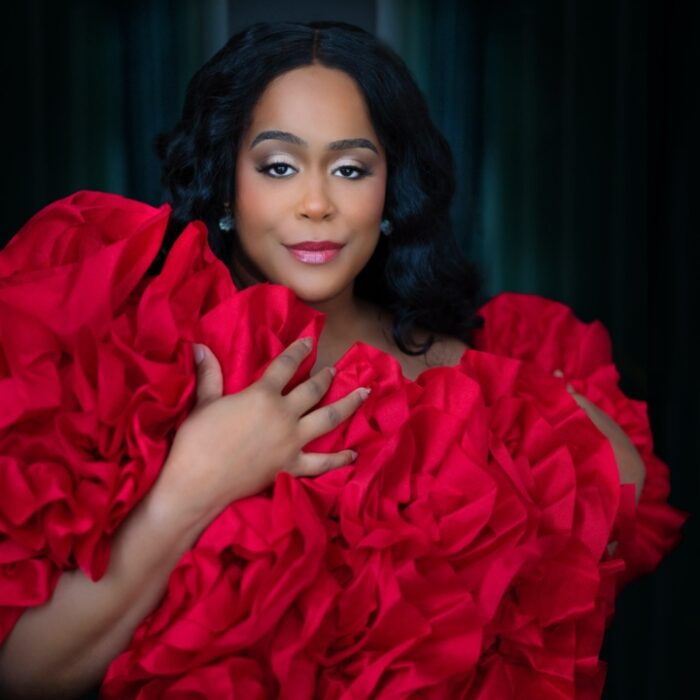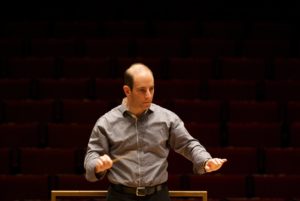
Q & A: Conductor Francesco Milioto on Korngold’s ‘Der Ring des Polykrates’ & Numi Opera’s Mission
By David Salazar(Source: Francescomilioto.com)
Earlier this year, Numi Opera took on “Der Zwerg” by Zemlinsky, officially launching a project that aimed to shine a spotlight on Jewish composers banned by Hitler. Now the company is set for its second production, “Der Ring des Polykrates” by Erich Wolfgang Korngold, best known for “Die tote Stadt.”
In taking on this Korngold work, the company is also showcasing a major evolution in its development. Whereas “Der Zwerg” was staged with only a piano accompaniment, “Der Ring des Polykrates” will feature a 37-piece orchestra under the musical direction of Francesco Milioto, in his debut with the company.
Milioto, who has led prominent performances with such companies as Florentine Opera Company, and Opera San Antonio, recently spoke to OperaWire about reviving this Korngold work and the importance of Numi Opera’s mission.
OperaWire: What makes “Der Ring des Polykrates” a unique work?
Francesco Milioto: I think the first thing that stands out is that this beautiful and intricate opera, based on such an intimate story, was composed by a teenager, and it was his first attempt at opera. What’s unique and remarkable about this opera is how Korngold is already such a master of setting text in a conversational style, and still makes the lyric moments lush and thrilling.
The musical style is based in Strauss, Mahler, Zemlinsky etc. and therefore is expertly orchestrated, lush, melodic, and atmospheric, however, there is something particular about Korngold being a great pianist and great improviser, that opens up a new window into his musical language.
OW: Could you elaborate on the musical style and language of the piece and how it differs from some of Korngold’s other works?
FM: There is a great sense of youth and energy in this opera, and a unique understanding of musical architecture. The way he bounces between time signatures and tempi is masterful, especially in the first few scenes. It’s like “flexible math” in that there is always a solid relationship between the elements, but they must also bend to the will of the text, style and schwung of the whole.
Having conducted pieces composed before and after “Der Ring des Polykrates,” I can certainly say that you can hear Korngold’s voice start to break from his early influences and see things in the harmonies, orchestration, and melodic writing that will bring us works like “Die tote Stadt,” the violin concerto and Oscar-winning music for Hollywood films.
OW: What are the greatest challenges of taking on a work like “Der Ring des Polykrates?”
FM: The music is extremely difficult for everyone involved, but the performance must seem natural and easy…which, of course, is never easy! This piece is so many things: an opera, a musical, a conversation, an intimate aria, a Hollywood score, that one must be able to balance all of this an deliver a coherent performance. The responsibility of the orchestra to create atmosphere is much like that in the music of Strauss, and the intricacy with which it is written into the vocal lines makes the orchestra another character in the scenes.
A sensitive collaboration between everyone is a must. This is very complicated chamber music, so pacing is of the utmost importance. There is more here than simple management of tension and relaxation when it comes to the big picture, since a large portion of the piece is conversationally driven and always in motion.
OW: Do you have a favorite moment in this work?
FM: Scene four, Laura’s aria is the first time someone is alone on stage and truly open, reflective, and revealing an inner struggle. I feel this is where we see the composer at what makes him most special.
The setting of the text is so natural and well-paced that the audience is brought right into her world. A world that is perfectly created by the orchestration. The orchestra becomes her thoughts and carries her feelings to the ear. The amount of detailed articulations, markings and solo lines in this scene is a testament to Korngold’s understanding of the orchestra’s importance and effect on such a delicate moment.
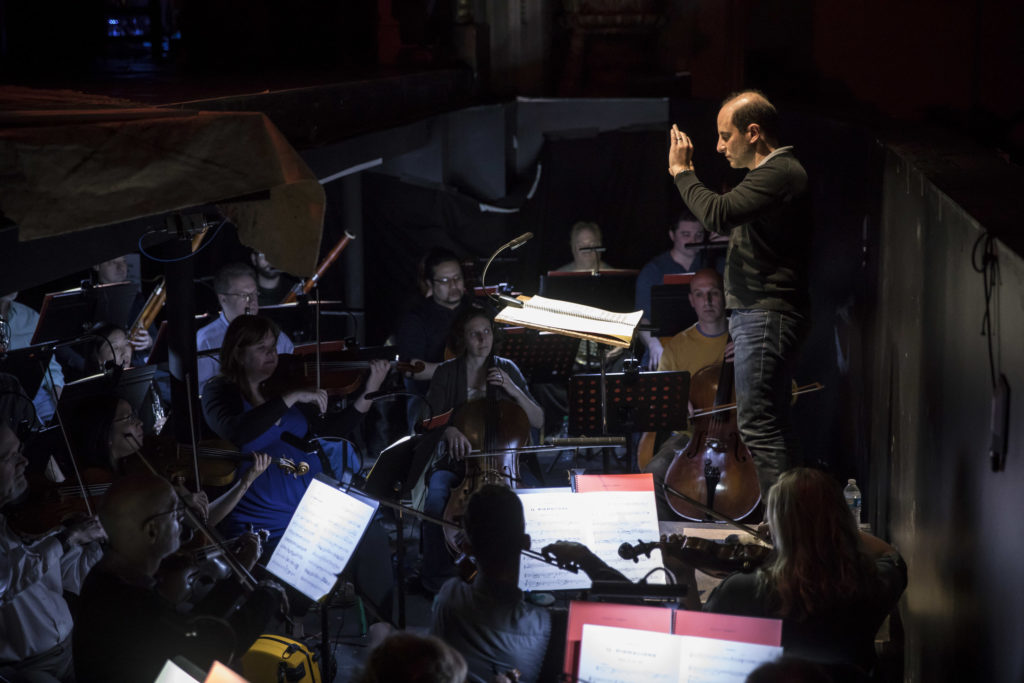
(Source: Francescomilioto.com)
OW: Unlike “Der Zwerg,” which Numi Opera performed earlier this year, this production will feature a 37-piece orchestra. It is a big change for the company in its second production. How did this opportunity come about and what impact is it having on the team around the opera?
FM: I think it was always [Executive Director] Gail Gordon’s intention to involve an orchestra as soon as possible, and grow with each production. Following the success of “Der Zwerg,” the excitement of adding the orchestra to our productions is palpable. Of course, there are many more conversations, decision, and communication involved in organizing all of the players, getting the parts, schedules, pit plots, etc… In speaking for myself, there is a huge difference in preparation for rehearsals with only piano versus full orchestra. The full score is the complete vision of the opera, where the piano score is mostly meant for learning and rehearsing. I learn everything from the piano, and am therefore well aware of the its limitations, especially in reducing a score so densely orchestrated.
The amount of time spent studying is both remarkable, and never ending. The number of decisions that must be made multiplies a hundred-fold, and the “weight” of the orchestra is completely different to that of the piano. Very often the most exciting rehearsal is the sitzprobe, when we first hear the singers and orchestra together. I am grateful to Gail for her insistence that the singers be present at each of the orchestra reads. This will certainly help the transition from piano to orchestra, which for difficult works such as this can be daunting and stressful.
OW: Could you speak a bit about the cast members for this work and what they each bring to their roles?
FM: Both Shana Blake Hill and Scott Ramsay I have known for years. Blake is a truly gifted actor and emotionally connected artist with an incredibly flexible and lush voice. I look forward to her interpretation of Laura, peeling back each layer of this complex character. Scott and I have done a number of things together and his personality and voice are perfectly suited to this role. A lead tenor in every sense, his musicality and finesse will play well in counterpoint with the orchestra.
I only met Roberto Gomez during music rehearsals for “Der Zwerg,” but his powerful voice and elegance is undeniable. He is such a reliable musician, and I look forward to seeing him take to the stage as Peter Vogel.
Alex Boyer and I were covers together at The Dallas Opera for “Moby Dick” a few years ago. He was impressive to say the least, and his voice was sterling and strong. He will provide an interesting contrast to Wilhelm. I have yet to meet Ms. Rosenberg, but by all counts she is a fabulous artists and I look forward to working with her.
OW: What do you hope audiences take away from “Der Ring das Polykrates?”
FM: I’d like for them to leave with the sense of joy from having seen our wonderful opera buffa! I hope that the audience leaves with a real curiosity for this unbelievably talented composer, and take a moment to think that it is possible we might never have heard this music under different circumstances.
I hope they understand that this was an incredibly mature beginning for Korngold, and a window into what he would become as a versatile and celebrated composer in the golden age of Hollywood. I hope they leave with an appreciation for what humans can do together in this most incredible art form, and a desire to see more of it from Numi Opera!
OW: Why is Numi Opera’s mission important to you personally?
FM: It was working as a pianist and assistant to James Conlon at the Ravinia Festival on several of his Recovered Voices programs that I first began to think seriously about the silencing of any composer’s music, and in particular that of Jewish composers. Any project I can be involved with to help restore the incredible and important music of a composer that was suppressed or even forgotten, I am happy to do.
I cannot image what it was like to have to uproot your life, have your music banned, or have to bend your musical voice to the will of political leaders. However, I do know how important it is to bring these gifted composers to audiences everywhere by giving their music performances in our concert halls. Not only does it add to our history, it enriches the canon of music we can share with audiences today.
OW: What are some other operas that you think would be perfect fits for Numi Opera that you would like to do in the future?
FM: There are so many works worthy of consideration… “Der Kaiser von Atlantis,” “Brundibar,” and works by Gál, Goldschmidt, Schreker, Zemlinsky, Schoenberg, Stravinsky etc.
I’d love to keep exploring the connection of composers to LA and Hollywood. There is such a wide range of repertoire these composers wrote, and so many ways to present them. I think making connections to others that suffered similarly is important as well.

